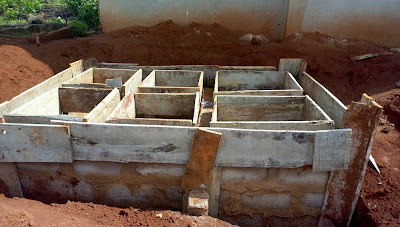By Eco-friendly, I mean you’ll never have to worry about seepage of septic wastewater to the ground water or foul smell. But then, let’s not forget the septic system is one great way to treat wastewater efficiently. The septic tank system installed in our homes helps keep digest solid and liquid wastes by having micro organisms feed on these thereby ensuring there is a separation of Ground water from waste water. It also ensures there is not interference between ground and waste water. This implies when our septic tank system works effectively, we’re guaranteed of a safe and friendly environment which is why we’re going to be studying 5 tips that will help our septic tanks remain eco-friendly.
1 Adopt Trenchless Style of Repairs
Trenchless repair of the septic tank system is a method of repairing the septic tank without tearing the ground to expose the underlying pipe systems.
By adopting Trenchless style of repairs, homeowners often escape environmental disturbances emanating from combustion of fuel (Gas or petrol) by excavation machines, Exposing of untreated sewage and lastly, loosening the soils that will later wash into nearby waterways
2. Ensure Micro-flora isn’t harmed in anyway
Micro-flora are actually very important aspect of our septic system that helps process wastewater to such degree that there is no harm going to the environment and therefore there is need to ensure they’re not harmed during septic tank maintenance.
Recommended
One way Septic Micro-flora could be harmed is by flushing antibiotics. However, if you just flush antibiotics, ensure you make available some septic tank additives which are usually bacteria that help keep micro-flora growing
Aside from ensuring micro-flora are not harmed, it is important you regularly pump your septic tank, ensure dangerous chemicals aren’t flushed into the septic tank as these could kill the micro-flora organisms, avoid overusing the Leach field
3. Dispose Solid wastes Properly
As a homeowner with kids and visitors from varying backgrounds who may not know what it means to keep a septic system clean, clogging could occur when the wrong materials are flushed into the system.
When wrong wastes are flushed into a septic tank, the effect could be harmful to the environment and you as the homeowner.
The very most dangerous effect of clogging tour septic tank system is that waste water could end up finding its way into the environment and this could be quite embarrassing specially when you have a lot of neighbors living very close to you.
Examples of Stuffs You Must Not Flush into the septic system includes
- Coffee grounds
- Antibiotics
- Baby diapers
- Wipes
- Dental floss
- Cat litter
- Sanitary pads
- Oils, etc
To help you understand what needs to be flushed or kept in the waste bin, its important you make a rule that anything that isn’t made of toilet paper must be thrown into the waste bin rather than flushed into the septic tank
4. Always call for Septic Tank Inspection
While it is important to ensure tips 1, 2 and 3 listed above are strictly observed, it is also important that you always request septic test and inspection sessions as these allows you know the environmental impacts of your septic tank and the need to keep it functional. If you really want a septic system then is eco-friendly, you must ensure the septic tests and inspections are carried out by licensed inspectors as advised by the health officer nearest to you.
Recommended
Some examples of septic malfunction that could lead to serious environmental disturbances includes but not limited to;
- Over saturated Leach fields
- Leakage in tanks or pipes
- Overfilled pipes
- An Overused system
Its therefore recommended that you call for septic tank inspection on a yearly basis. This helps you determine the beat time to have your septic tank pumped
5. Have your septic System installed by Licensed Bodies only
If you are certainly going to follow strictly all that’s been mentioned above, one thing that could put your efforts to at total waste is having the system designed or installed by quacks.
If you’re a new homeowner, ensure your septic installation is carried out by licensed bodies as they know the right steps to take towards ensuring your septic tank remains eco-friendly
Recommended
Conclusion
On this post, I’ve made a list of 4 tips that helps keep your septic tank eco-friendly. We’ve also studied the several effects that could arise when the wrong practices are carried out as well as advising new homeowners to ensure their septic systems are designed and installed by licensed Bodies only as these are the most accurate means of keeping the septic system eco-friendly



